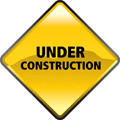If you are thinking of starting or expanding your own real estate brokerage, you might be wondering how profitable this business can be. The answer is not simple, as profitability depends on many factors, such as market conditions, location, competition, and business strategies. However, with proper planning and execution, real estate brokerages can be highly profitable ventures.
Table of Contents
Is owning a real estate brokerage profitable?
Commission-based revenue
The main source of revenue for real estate brokerages is commissions earned by facilitating property transactions. These commissions are typically a percentage of the sales price or lease value of a property. The potential for high commission earnings provides a significant avenue for profitability, especially in regions with a thriving real estate market.
For example, in the luxury segment, high-end properties often have substantial sales prices, leading to higher commission amounts. By targeting such high-value properties or working with esteemed clientele, brokerages can enhance their profitability.
According to a report by IBISWorld, the U.S. real estate sales and brokerage market is worth $222.3 billion in 2023 and is expected to grow to $311.8 billion by 2028. Residential sale represents the largest share ($177.8 billion) followed by commercial sale ($44.5 billion).
Using data from more than 1,930 franchised brokerage/real estate businesses, a broker/realtor earns $594,000 in gross revenue per year on average. This number is the average gross revenue per business from 1,930 brokers/realtors from the largest 4 brokerage/real estate franchises in the U.S.
With an average commission per sale of 3%, and an average home price of $430,300, that’s an average of 46 real estate sales per year per brokerage/real estate business.
Diversification of services
Successful real estate brokerages often diversify their services to maximize profitability. This may include offering property management, real estate investment consultancy, mortgage brokering, or even ancillary services such as interior design or home staging. By expanding service offerings, brokerages can generate additional revenue streams and increase their overall profitability.
For instance, a brokerage that offers property management services can earn recurring income through management fees while still benefiting from commission-based revenue when a property is bought or sold.
According to a report by IBISWorld, the U.S. property management market is worth $88.4 billion in 2023 and is expected to grow to $96.5 billion by 2028. The average annual revenue per property management business is $1.1 million.
Strong market knowledge and networking
Being well-informed about local market conditions and having a wide network of industry contacts can significantly contribute to the profitability of a real estate brokerage. This knowledge and network enable brokers to identify lucrative opportunities, negotiate better deals, and attract a larger client base.
For example, a brokerage with deep connections in the commercial real estate sector may gain exclusive access to off-market properties or receive preferential referrals from industry professionals, leading to increased profitability.
According to a report by RealTrends, one of the drivers influencing brokerage profitability is team productivity. By hiring and retaining top-performing agents who have strong market knowledge and networking skills, brokerages can boost their productivity and profitability.
Effective marketing and brand building
Investing in robust marketing strategies and building a strong brand presence can help real estate brokerages attract more clients and stand out from competitors. Online marketing, social media presence, and traditional advertising methods can all contribute to increased visibility and lead generation.
For example, a brokerage that consistently produces high-quality content, such as informative blogs or videos about the local real estate market, can position itself as an authoritative source and attract potential clients seeking professional guidance.
According to a report by RealTrends, another driver influencing brokerage profitability is eLeads programs. By implementing effective lead generation and conversion systems, brokerages can increase their sales volume and profitability.
Costs and expenses
While real estate brokerages have many opportunities for generating revenue, they also have various costs and expenses involved in running their business. These include start-up costs, operating costs, marketing costs, taxes, etc.
On average, it costs between $87,000 to $280,000 to open your own brokerage/real estate business. This includes various costs such as real estate improvements, furniture, fixtures, equipment, signage, rent, office and computer equipment, insurance, professional fees, licenses, permits, etc.
A brokerage/real estate business has a ~20% operating profit margin (EBITDA margin) after operating costs (salaries, admin expenses, etc.) have been incurred. Indeed, there are various recurring costs involved in running a brokerage/real estate business.
According to a report by RealTrends, the average EBITDA margin for real estate brokerages in the U.S. decreased from 4.5% in 2012 to 3.7% in 2021. This indicates that the industry is facing increased competition and pressure on profitability.
In summary, owning a real estate brokerage can be a profitable business, but it also requires careful planning and execution. By considering the factors discussed in this blog post, such as commission-based revenue, diversification of services, market knowledge and networking, marketing and brand building, and costs and expenses, you can increase your chances of success and profitability in the real estate brokerage industry.





